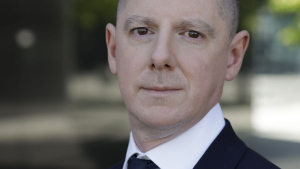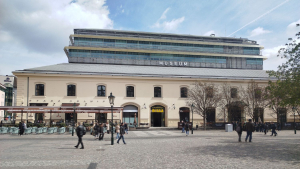
Over the past decade, Hungarian real estate investors have successfully expanded outside of their home market. Firms such as Wing, Futureal, Adventum, Indotek and others have become major players in many European countries, mainly Poland and Romania. They managed to expand via acquisitions of both companies and projects. Part of their funds came from bond issues in Hungary within the Bond Funding for Growth Scheme of the National Bank of Hungary. We have prepared a timeline of the notable transactions and an overview of the market’s key players to provide a better understanding of this trend.
Some local players in the real estate market made a relatively quick journey to become professionals in Hungary. Western operational standards were adapted smoothly which helped to accumulate a lot of experience in planning and executing development projects. Over the past decade, the biggest companies managed to extend their activities to most subsectors in the property market.
While they were happy to use the business potential Hungary could offer, they decided to explore other markets which seemed to give even better chances for growth and provided better conditions than Hungary. Their professionalism included being up-to-date internationally, which means they have been constantly monitoring trends and the performance of the main markets in the CEE region and beyond.
They have seen plenty of non-Hungarian players becoming stronger and market leaders in the region. They also realised that intention is not enough, additional capital is needed to facilitate that growth. That money did not necessarily come from project financing. They were happy to use funds coming from other sources, including the Bond Issue program of the Hungarian National Bank (MNB). The central bank launched a special HUF 1.15 billion Bond Issue program to support companies in some sectors including those in the real estate business. More than 40 firms had shown courage to issue corporate bonds which were bought later by MNB. Among them, a handful of property developers, and construction and facility management companies were given a chance to grow organically or via acquisitions. Let’s have a look at the results!
Futureal Group
Futureal Group has become a significant player in the European real estate market. The group operates as a diversified development and investment group with several sector-focused platforms. Co-founder Gábor Futó managed to extend the group’s activity to all segments of commercial and residential real estate in Hungary and elsewhere. In the early years of the last decade, he decided to make more fortune outside the country. Futureal Group has embarked on increasingly extensive international expansion in recent years focusing on Poland, Romania, Germany, the UK and Spain. Privately Mr Futó invested in the US residential market as well.
In Poland, he was the co-investor of the NoVa Park shopping centre in Gorzów (32,500 sqm GLA with 140 retailers) in 2012. Next year Futureal – via its subsidiary Cordia – entered the residential market. Since then, the company has developed more than 2,000 apartments in several cities such as Poznań, TriCity, Wrocław, Krakow, and Warsaw. In 2019, Futureal acquired the Antares office building in Warsaw. In 2020 Cordia acquired Polnord, a solid local developer firm for more than €40 million. Polnord owns one of the largest land banks among Polish developers, which allows the building of nearly 1 million sqm of residential and usable space.
In Romania, Futureal took part in financing ParkLake shopping centre (70,000 GLA) in Bucharest but in 2018 exited this deal to focus on the residential market. Cordia announced the start of a huge residential project with 400 units in the capital.
As for the UK, Futureal - via a local partner - acquired the Spectrum Building in Glasgow which offers over 6,800 sqm of office and retail accommodation. Later, Cordia acquired local developer Blackswan, The acquisition allowed it to deliver a GBP 550 million project pipeline across the West Midlands, mainly in Birmingham with the delivery of up to 2,500 new homes.
In Germany, Futureal sold its residential portfolio in Kaiserslautern (200 apartments and five retail units) to reinvest the money into its ongoing projects in Europe. Subsequently, Futureal announced the launch of Futureal Investment Partners (FIP), a real estate investment and asset management business focusing on value-added and opportunistic investments across Europe. As a first move, FIP started the renovation of the Wratislavia Tower office building in Wrocław in 2020.
Indotek Group
The billionaire Hungarian businessman Dániel Jellinek has ambitious plans part of which has been already realised. The group is present in 11 countries outside Hungary. The acquired properties include offices, industrial parks, hotels and shopping centres mainly in CEE and nearly all Mediterranean countries. Their most significant foreign transaction to date is probably the purchase of GTC’s entire Serbian office portfolio, comprising 11 office buildings in 5 business parks in Belgrade. The deal closed in early 2022.
Wing
Apart from the extensive office, residential, industrial and hotel developments in Hungary, Wing Group is present in three European markets: Poland, Germany and Bulgaria. In 2019, Wing acquired Echo Investment, the largest Polish developer, which has a track record in residential, commercial, and office markets. The Polish company’s activity is focused on seven cities: Warsaw, Cracow, Łódź, Wrocław, Katowice, Gdańsk and Poznań. It has already completed 200 projects with a total area of over 2 million sqm.
Wing entered the German market in 2022 by acquiring the majority stake in local Bauwert AG. Currently, the German company has a development pipeline of more than €2.5 billion in prime Berlin locations and dynamically growing surrounding areas. In Bulgaria instead of an M&A deal, Wing bought a complete project but no details have emerged yet about this investment.
Adventum International
Since its founding in 2016, Adventum has acquired office buildings in the Polish cities of Poznań, Warsaw, Katowice and Wroclaw, including the Mercedes Benz Headquarters in Warsaw. In 2021, the group also entered the Romanian market where it has since bought the Hermes Business Campus and the Expo office complex in Bucharest. In 2022, the group teamed up with EBRD to make co-investments of up to €50 million alongside
Adventum Penta in countries of the CEE region, including Hungary, Poland, and the Czech Republic. In the same year, Adventum signed contracts to acquire 18 retail parks in the Czech Republic and Hungary anchored by Tesco in a €280 million transaction — this app. 360,000 sqm of commercial space will be a significant addition to its growing portfolio in the region. Most recently, the group announced that it was preparing the first euro-based listing on the Budapest Stock Exchange. Under the Shopper Park Plus (SPP) brand, Adventum aims to become the owner and operator of a significant retail park portfolio in the CEE region and is considering further expansion in CEE.
Optima Investment Ltd.
Optima Investment Zrt., which manages the assets of the Hungarian National Bank’s (MNB) foundations, acquired a majority (61.5%) stake in GTC in 2020. GTC has a large office portfolio in Poland comprising commercial buildings and several development projects in the country and other capital cities in the CEE region (Budapest, Bucharest, Belgrade, Zagreb, and Sofia).
Bayer Construct Group
The group built a dynamic conglomerate which covers construction, property development and investment, in residential, office and hotel segments, mainly in Hungary. Owner Attila Balázs took over the majority of Appeninn, an investment and asset management company, which obtained four buildings of the Wiśniowy Business Park in Warsaw in 2022. This was Appeninn’s first acquisition outside Hungary. The buildings offer 39,534 sqm of modern office space and 1,272 parking lots. All facilities went on refurbishment in 2017. This transaction is an important step towards the diversification of Appeninn's portfolio. The holding reiterated that more acquisitions and refurbishments would follow both in and outside Hungary.
Lőrinc Mészáros and his empire of companies
Mr Mészáros, far the wealthiest businessman in Hungary directly and indirectly owns a lot of firms in the construction and investment sector in the country. His wealth is estimated at more than HUF 660 billion which has been accumulated over the past 10 years. A relatively small part of this money was invested in prime real estate outside Hungary, mainly in the hotel sector in Croatia.
B+N Referencia Ltd.
Hungarian-owned B+N Referencia Ltd., specialising in facility management, has made several acquisitions outside Hungary over the past 2 years and now 40 per cent of the group’s revenues comes from foreign operations. The group bought the majority stake in the Italian company Sagad and acquired two firms in the Czech Republic in the field of building management, maintenance, landscaping and gardening.
So far these have been the most notable European transactions of the biggest Hungarian players. But these firms have not run out of money, on the contrary, they still have deep pockets and keep seeking good deals. They are expected to make much more once the regional investment market stabilises.



